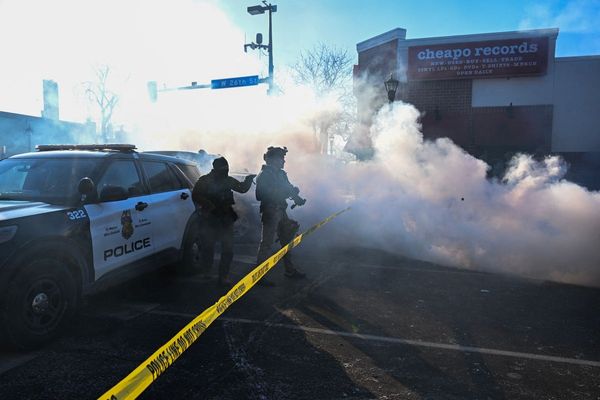Juvenile crime is making a worrying post-pandemic comeback in south-east Queensland, with police saying a small group of offenders is responsible for nearly half the crime occurring.
Comparing the first four months of this year to the same period pre-COVID, in 2019, unlawfully using a motor vehicle charges against youths aged 10 to 17 has spiked by almost 152 per cent in Brisbane, south-eastern and southern Queensland regions.
Deputy Commissioner Steve Gollschewski said the issue of young people dangerously driving stolen cars was a particularly frightening trend, putting both themselves and other road users at risk.
"We're very conscious of how important it is we get on top of this as quickly as we can," he said.
"They're taking themselves down a path they may not be able to get out of.
The statistics showed a major jump in offending by juveniles compared to adults.
Charges of unlawful entry rose 77 per cent for juveniles but fell 8 per cent for adults during the same period.
And while the number of charges of unlawful use of a motor vehicle against juveniles more than doubled, for adults, it rose just 4.3 per cent.
Deputy Commissioner Gollschewski said while the number of offences committed by youth had fallen by 1 per cent in the past five years, fewer than 400 juveniles were responsible for nearly half the crime occurring.
"That doesn't make it easier, it is complex and we have to work within the law.
"Our real focus is trying to understand, 'what's that really difficult group doing now, and how can we have interventions and things that can be done to try and prevent that happening?'
"Every time we bring in new interventions, we continually need to review what we do and change what we do because the offending behaviour changes.
"We're certainly in that space now ... with the young people for instance, we're seeing increases in unlawful uses, so motor vehicle thefts significantly."
'A whole pile of bad decisions'
Forest Lake resident Jason Clarke was riding his motorcycle home when a car full of juveniles in an allegedly stolen car sped through a red light, missing him by less than a metre.
"A car just came out of nowhere at speed, I managed to stop and miss it by, I don't know, less than a metre, and it ploughed into the side of [a] van.
"The front of the van was pretty much missing, and they also took out one of the traffic lights.
"They kept going down the road and crashed into the bus stop.
"Pretty scary, a whole pile of bad decisions."
Kieren Johnston had only just moved into his home in Ashgrove when he says his car was taken from outside his house at 1am, just five days later.
He said "two kids" made a beeline for his car after they could not get into a secure house down the road.
They then racked up $4,132 in traffic fines over a few days.
"Ran up about $30 worth of road tolls, so they gave it a good work-out," he said.
Crime down over the pandemic
Deputy Commissioner Gollschewski said young offenders were taking more risks to overcome technological advances in car security.
"Instead they are breaking into homes to steal keys," he said.
Deputy Commissioner Gollschewski said crime like theft and violence had reduced over the pandemic but "we're seeing it start to return to what will be the norm post-COVID".
Drug offending and drug usage did not dip, despite "supply issues" for illicit drugs.
"Those supply chains were really disrupted in some instances. As it returns to normal, we will see what that means for us," he said.
"Of course, we're all over this … we're very conscious of these things."
'Changes won't happen overnight'
Deputy Commissioner Gollschewski said the Youth Justice Strategy, in place since 2019, has done its job in some problems areas like Logan, but "changes won't happen overnight".
"It can be disadvantage, there can be drug use, there can be domestic and family violence.
"Unless we can address those, we're not going to be able to reduce that offending.
"The validity of the strategy is very sound because you're not going to fix this up by policing your way out of it, by just arresting kids and putting them in jail."
He said one of the big outcomes of the strategy for the more serious offenders was seeing more support from the court system around bail objections.
"So those young people who are posing the most risk to the community, are being kept in custody for longer," he said.
He said since July 1 last year, there had been 11,347 supervision and bail checks carried out, and more than 15,000 interactions with repeat offenders.
"These are very big numbers in particular when we're talking about small cohorts of people, young people that commit lots of offences," he said.
Deputy Commissioner Gollschewski said police were also looking at everything they had "at their disposal" to address other emerging trends like youth street gangs.
He said specialist police were working very closely with officers in the districts.
"That sort of youth offending takes it to another level. The risk to our community," he said.
"There's an enormous amount already being done. Are we getting the results yet? No. That's why it is a longer-term strategy."







